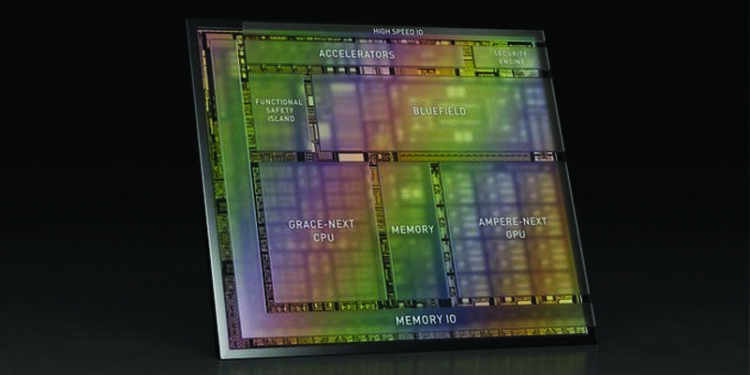NARASIMHAN KASTHURI
SILICON VALLEY, APRIL 16
NVIDIA has announced the launch of Grace CPU, a server processor chip based on technology from Arm Ltd. Its first data center CPU, an Arm-based processor that will deliver 10X the performance of today’s fastest servers on the most complex AI and high performance computing workloads, is the result of more than 10,000 engineering years of work.
This will put NVIDIA in direct competition with Intel chip. The company also announced a slew of other products at its annual tech summit on Monday. NVIDIA has acquired Arm from SoftBank recently.
We've been expanding where we collaborate with @NVIDIA to help our partners meet the ever-evolving demands of compute.
The Grace CPU is part of this. Named after computing pioneer Grace Hopper, Grace is NVIDIA’s first @Arm-based data center CPU. https://t.co/EZpXLOaKbp #GTC21 pic.twitter.com/dPNnap6iSX
— Arm (@Arm) April 14, 2021
The NVIDIA Grace, named after Grace Hopper, the US computer-programming pioneer, CPU is designed to address the computing requirements for the world’s most advanced applications — including natural language processing, recommender systems and ai supercomputing — that analyze enormous datasets requiring both ultra-fast compute performance and massive memory. It combines energy-efficient Arm CPU cores with an innovative low-power memory subsystem to deliver high performance with great efficiency.
“Leading-Edge AI and data science are pushing today’s computer architecture beyond its limits – processing unthinkable amounts of data,” said Jensen Huang, Founder and CEO of Nvidia.
Jensen who was addressing the company’s tech conference GTC21, on Monday, said, “Using licensed Arm IP, NVIDIA has designed Grace as a CPU specifically for giant-scale AI and HPC. Coupled with the GPU and DPU, Grace gives us the third foundational technology for computing, and the ability to re-architect the data center to advance AI. NVIDIA is now a three-chip company.
NVIDIA whose first-quarter revenue is set to exceed its earlier forecast of $5.3 billion, said on Monday, it benefits from strong demand for chips that power data centers and cryptocurrency mining. Demand for its gaming graphic chips had soared during the COVID-19 pandemic, but the high sales is attributed to an aggressive push into artificial intelligence chips, which handle tasks such as speech and image recognition in data centers.
NVIDIA’s GTC brings together a global community of developers, researchers, engineers, and innovators to experience global innovation and collaboration. The event delivers the latest breakthroughs in AI, HPC, accelerated data science, healthcare, graphics, government and more. The OpenPower Foundation has a few sessions from the foundation members IBM, Oak Ridge National Laboratory, CINECA and Ohio State University.
India and Indians have been featured in the AI arena at the conference. A session devoted on Women in AI have all panelists only Indians. They include Anna Roy of NITI Aayog on Tuesday. On Thursday the conference features a session on Why is the AI Startup Landscape in India Booming? Brilliant women at the forefront of AI — entrepreneurs, academic researchers, industry executives, venture capitalists, and more — are shaping the future of artificial intelligence. This inspiring session anchored by NVIDIA’s own Animashree Anandkumar features some of the top women leaders in AI today discussing their work and thoughts on how AI will reshape every corner of our lives in the coming years — from health care to finance, from education to government. We’ll also throw light on how what a more inclusive AI community can and should look like, and will inspire the next generation of AI leaders.
According to the report from NASSCOMM, Data and Artificial Intelligence (AI) could potentially add $450-500 billion to India’s gross domestic product (GDP) by 2025 and drive India’s economic growth.
According to Phoenix Research, India AI market size is anticipated to register growth during 2021-2027. Growing adoption of cloud-based services as well as increasing demand for intelligent virtual assistants would be major factors responsible for the growth of artificial intelligence countrywide. Moreover, increasing penetration artificial intelligence in several industries such as manufacturing, security, human resource, automotive and others would further positively influence market growth.
(Narasimhan Kasthuri is the former Senior Correspondent, THE HINDU)












